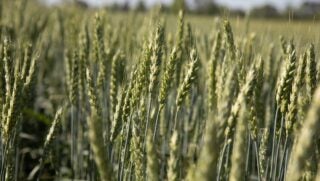The citrus industry in the United States is facing a lot of challenges, including plant disease, high labor costs, and other factors that are taking their toll on US citrus growers. A Texas-based veteran citrus scientist is helping to improve the citrus industry with a grafting method that speeds up the growth of citrus trees and the density of orchards and gardens.
Dr. Skaria Develops Micro-Budding
After decades of working in the citrus industry and as a professor at Texas A&M University in Kingsville, citrus scientist Dr. Mani Skaria founded US Citrus to provide ‘micro-budded’ citrus trees and fruit. Dr. Skaria developed ‘micro-budding’ in 1997, which is a grafting method that dramatically shortens the length of time for budding. US Citrus is now using this proprietary micro-budding technique to make a variety of fast-growing citrus trees available to all consumers in the United States.
The Micro-Budding Process
Dr. Skaria’s micro-budding process used at US Citrus begins with rootstock, a small piece of an existing plant, that is germinated in a controlled environment. Buds from desirable mother trees are then hand-grafted onto the rootstock. In less than 6 months, the buds sprout and are ready to be planted. The company stated that the citrus trees shipped to customers are identical to those used at their grove to produce their citrus fruits.
Micro-Budded Citrus Trees
At the US Citrus grove in Hargill, Texas, Dr. Skaria has enabled the micro-budding method to be applied to all citrus varieties, including lemons, limes, mandarins, oranges, kumquats, blood oranges, and others. As a result, US Citrus trees are able to produce fruit within 2 years. The company has stated that the citrus trees are disease free and can be shipped to most states.
“All US Citrus trees are grown in USDA certified enclosed nursery facilities,” Dr. Skaria said. “Furthermore, the facilities are routinely inspected, and trees are tested for diseases by the USDA. It is also suitable for organic production. We can ship trees to most states, however at this stage, federal regulations prevent us (or any other citrus grower) from shipping citrus trees to California, Florida, Arizona, Hawaii, or Louisiana. However, we will be working with USDA-APHIS and citrus producing states for permission to ship to those states in the future as we produce all trees in a USDA-certified facility and shipped with compliance agreement.”
Improving the Citrus Industry
Dr. Skaria is out to improve the U.S. citrus industry by providing trees with the ability to bud much earlier than conventional citrus trees. His U.S. citrus grove is continuing to expand, and the company publishes helpful resources and experienced insight about growing citrus trees and fruit on their website, including a citrus care guide for new citrus growers.


